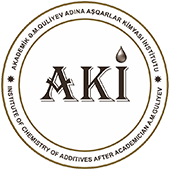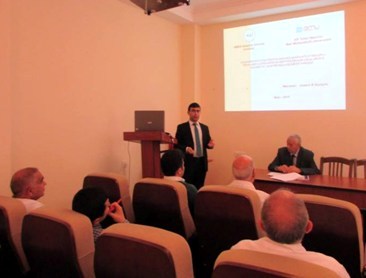A seminar was held at academician A.Guliyev Institute of Chemistry of Additives of ANAS on the results of joint international research carried out by young specialists of the institute together with the Center for Computer Research of the University of Buffalo.
Opening the event, Deputy Director of the Institute Prof. Mirza Movsumzade said that the scientific seminar was devoted to the modern and very topical problem of chemistry – the study of the theoretical and experimental mechanism of three-component chemical reactions by using computer calculations and significant progress was made in this area.
Then Associate Professor Afsun Sujayev, head of laboratory “Theoretical Basis of Synthesis of Additives and Mechanism of Action”, spoke. He spoke about the reactions carried out by his research team, the physicochemical properties of new substances and their functional properties.
Then the head of the chemical engineering department of Baku Engineering University, a leading researcher at the Institute of Petrochemical Processes of ANAS, Associate Professor Yusif Abdullayev, noted that theoretical studies had been carried out for 6 months in accordance with the experimental results, taking into account the reaction mechanism, choice of catalyst, catalytic effect, type of isomeric formations and obtained important results.
He added that the software used in these operations was called “Gaussian”: ” With the help of the Internet, user names are given in the cluster center, and researchers from around the world can send commands to the system and receive the results of operations. These clusters have the ability to perform many operations, for example, in chemical reactions, the ability to calculate the minimum energy of the components makes it possible to express an idea about the possibility of the reaction course. This also increases the efficiency of research from an economic point of view, the need for experimental verification of processes. With the help of such programs, it is possible to investigate the structure and functional relationships of complex biomolecules in chemistry, physics, biophysics, pharmacology, and other fields. “


